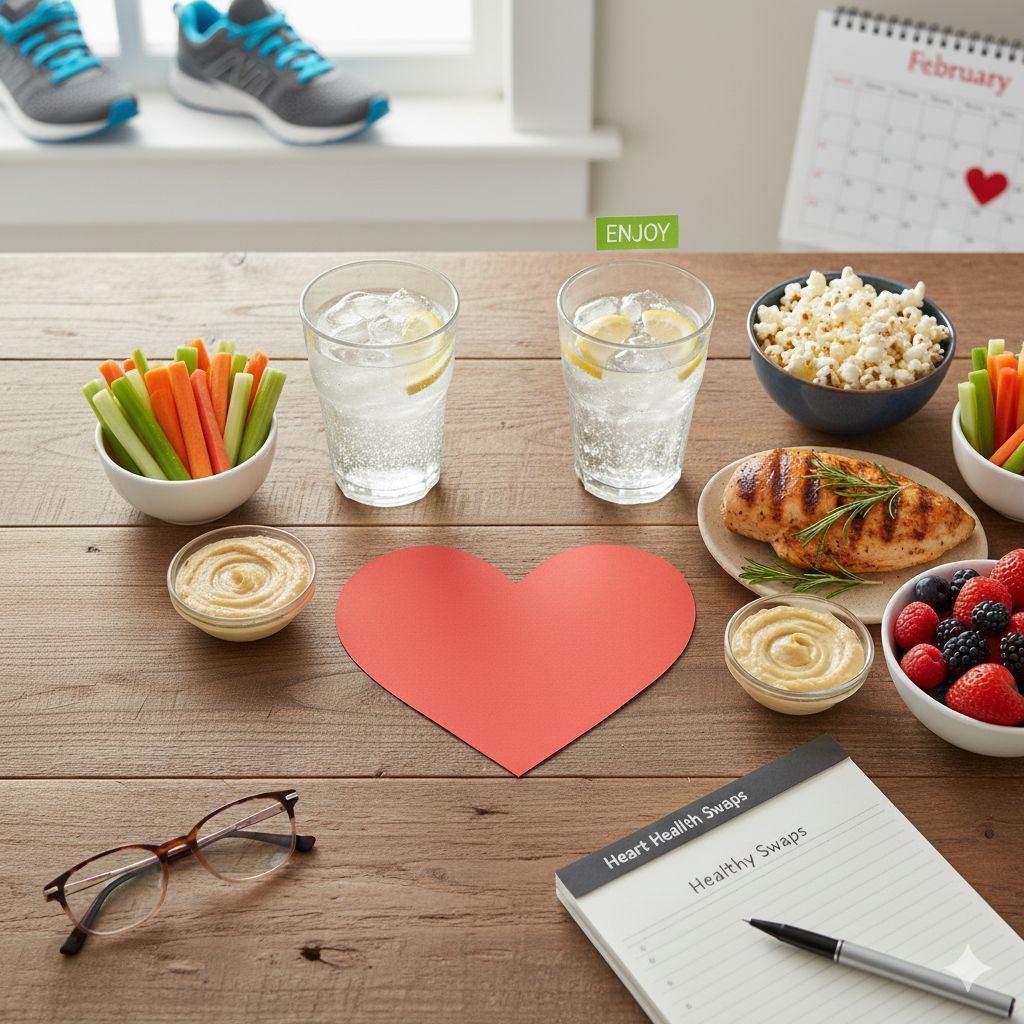Can you lose weight without counting calories?
No matter how you slice it, there is no getting around the fact that calories in need to be less than calories out to lose body fat. In other words, you need to eat less or exercise more, or do both, to lose weight. However, there is no need to get obsessive over it.
As the Lark DPP check-in pointed out, each day is different. The calories in foods and beverages that you eat and drink, and the calories burned throughout the day, have ups and downs, and so does your weight on the scale. You can lose weight without stressing about each little calorie or blip on the scale, and lose a little more when you are aware of possible reasons for weight fluctuations.
Calories in Versus Calories out

To be sure, there are different ways of approaching and achieving a calorie deficit for weight loss. Some people focus on calories, such as choosing lower-calorie alternatives and/or exercising more to burn more calories. Other ways to cut calories can include:
- Counting carbohydrates: People may eat less of high-carbohydrate foods, or foods with a lot of sugars or starches, such as bread, pasta, potatoes, rice, desserts, soft drinks, and snack foods. If they are replaced by lower-calorie foods, such as vegetables and lean proteins, such as fish and tofu, the net result can be a reduction in the number of calories eaten.
- Choosing filling foods. People may focus on selecting filling foods, such as lean proteins and high-fiber vegetables, fruit, and grains, with the goal of filling up before eating many calories. For example, a meal such as 6 ounces of tilapia, 2 cups of broccoli, a side salad, and a cup of fruit may seem large, but it has less than 400 calories and may not leave space for a 400-calorie dessert.
- Slashing portions. People may choose to eat their favorite foods, but in smaller amounts, which leads to fewer calories taken in. (To avoid hunger with this strategy, it is best to add low-calorie foods, such as vegetables, to make meals bigger and more filling).
However you choose to do it, weight loss requires a relatively lower amount of calories to be taken in.
Freedom from Micromanaging Calorie Counting

You may have heard something about needing to build up a 3,500-calorie deficit to lose a pound of body fat, which works out to 500 calories per day to lose a pound a week. Similarly, a 250-calorie daily deficit leads to a half-pound lost per week, while accumulating 1000 calories of deficit each day can lead to losing 2 pounds in a week.
Still, it is unlikely that your daily deficit will be exactly the same each day, and that is okay. You may have noticed this especially if you have been logging food and physical activity in Lark or another platform. You may have a long, hard workout one day, and take the next day off from exercising much. Or, you might go out to lunch and dinner one day, but stick to smaller, home-packed meals the next.
The important thing is to keep up the overall deficit by making healthy choices. You may not know exactly how many calories are in that small order of macaroni and cheese, or exactly how far you walked when you did two laps around the park, but you know that there were fewer calories in the small order than the big one, and that your walk was long enough to make you feel good. The awareness of good choices is more important than the exact numbers of calories.
Factors Affecting Daily Weight

Just as calories in and out change each day, so does weight on the scale. It can reflect small and real changes in body fat, but more likely a daily blip or dip is due to something unrelated to body fat. A bump up can be the result of eating a lot of salt the day before, while a dip down can be a reflection of mild dehydration. Both of these examples are unrelated to calories in or out, and unrelated to changes in body fat!
Some ways to get the scale to reflect the hard work you are doing include:
- Getting adequate sleep
- Lowering or better managing stress
- Staying hydrated
- Weighing yourself at the same time each day or week
- Eating a high-fiber diet to promote regularity
It is great that extreme calorie counting is not a requirement for weight loss. Stick to the right general idea - eating well and being active - and the pounds will gradually but surely come off. Being aware of possible reasons for daily fluctuations can help you stay motivated as the scale changes day to day, and using Lark to log meals, physical activity, and weight can lead to better awareness and motivation in the journey to lower diabetes risk.



.jpg)








.webp)








